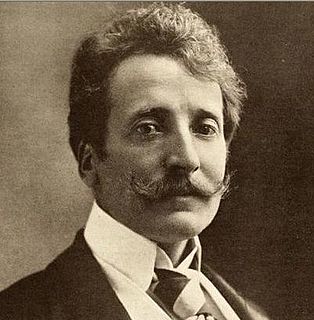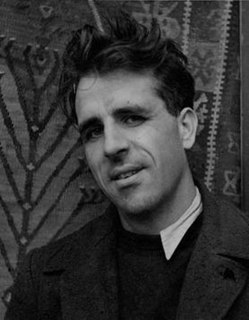A Quote by Orlando Gibbons
The silver Swan, who, living, had no Note, when Death approached, unlocked her silent throat. Leaning her breast upon the reedy shore, thus sang her first and last, and sang no more: 'Farewell, all joys! O Death, come close mine eyes! More Geese than Swans now live, more Fools than Wise.'
Related Quotes
He recognized her despite the uproar, through his tears of unrepeatable sorrow at dying without her, and he looked at her for the last and final time with eyes more luminous, more grief-stricken, more grateful than she had ever seen them in half a century of a shared life, and he managed to say to her with his last breath: “Only God knows how much I loved you
So much wanting and longing, clutching, desiring, passion and hatred and terrible need. Here, death was suitable, there was room for it, the grip of life's relentless urges slackened, replaced by this icy simplicity. This wasnt her death. It was his. That was the sad and honest truth. Though it would stay with her, it would be more like a black onyx heart on a silver chain, worn privately, under her clothes, close to her body, all her life. The guilt, the beauty, everything. It wasnt over, it had only begun. Well ok then, Okay.
She was like me in lineaments-- her eyes Her hair, her features, all, to the very tone Even of her voice, they said were like to mine; But soften'd all, and temper'd into beauty; She had the same lone thoughts and wanderings, The quest of hidden knowledge, and a mind To comprehend the universe: nor these Alone, but with them gentler powers than mine, Pity, and smiles, and tears-- which I had not; And tenderness-- but that I had for her; Humility-- and that I never had. Her faults were mine-- her virtues were her own-- I loved her, and destroy'd her!
My wife, my Mary, goes to her sleep the way you would close the door of a closet. So many times I have watched her with envy. Her lovely body squirms a moment as though she fitted herself into a cocoon. She sighs once and at the end of it her eyes close and her lips, untroubled, fall into that wise and remote smile of the Ancient Greek gods. She smiles all night in her sleep, her breath purrs in her throat, not a snore, a kitten's purr... She loves to sleep and sleep welcomes her.
Her kitsch was the image of home, all peace, quiet, and harmony, and ruled by a loving mother and a wise father. It was an image that took shape in her after the death of her parents. The less her life resembled the sweetest of dreams, the more sensitive she was to its magic, and more than once she shed tears when the ungrateful daughter in a sentimental film embraced the neglected father as the windows of the happy family's house shone out into the dying day.
The wide world was changing, and she wanted a different place in it. Not just wanted, but felt she deserved. If the world didn't owe her a living, as her mother repeatedly warned her, it owed her a break. She had a strong sense that a better, more exciting, more rewarding life than that which had been the lot of her parents and grandparents was hers by right. In this she was guilty of nothing more serious than the arrogance of youth, from which every generation suffers and by which it distinguishes itself from the preceding one.
Now, Bella suspected by this time that Mr. Rokesmith admired her. Whether the knowledge (for it was rather that than suspicion) caused her to incline to him a little more, or a little less, than she had done at first; whether it rendered her eager to find out more about him, because she sought to establish reason for her distrust, or because she sought to free him from it; was as yet dark to her own heart. But at most times he occupied a great amount of her attention.
That moment she was mine, mine, fair, Perfectly pure and good: I found A thing to do, and all her hair In one long yellow string I wound Three times her little throat around, And strangled her. No pain felt she; I am quite sure she felt no pain. As a shut bud that holds a bee, I warily oped her lids: again Laughed the blue eyes without a stain. And I untightened the next tress About her neck; her cheek once more Blushed bright beneath my burning kiss . . .
Water, earth, air, fire, and the other parts of this structure of mine are no more instruments of your life than instruments of your death. Why do you fear your last day? It contributes no more to your death than each of the others. The last step does not cause the fatigue, but reveals it. All days travel toward death, the last one reaches it.







































